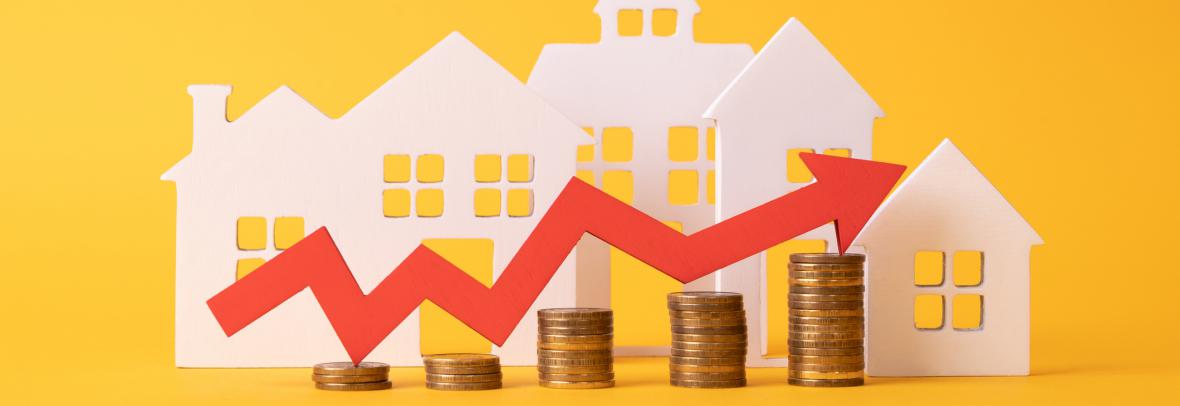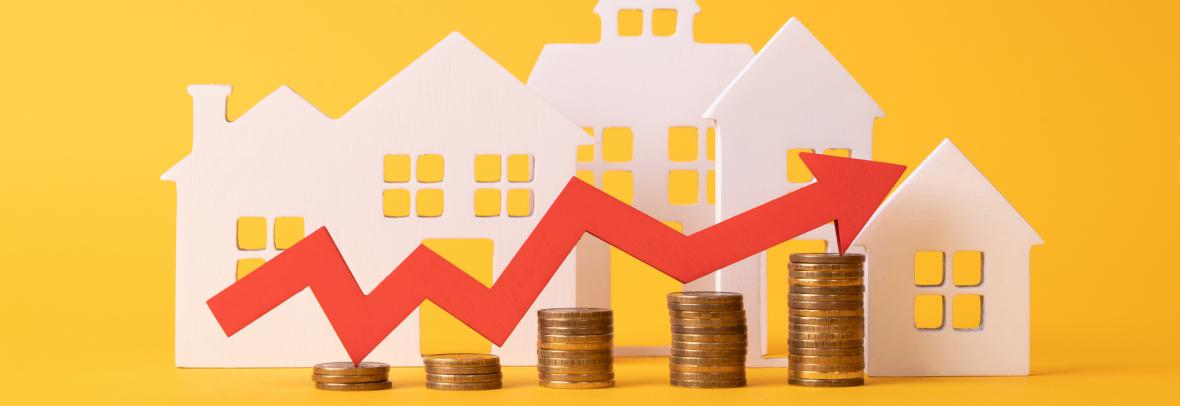
The Fed says its rate hikes will “reset” the housing industry, but the disruption may come largely from buyer-seller confusion. If confused, people tend to do nothing.
NEW YORK – The Federal Reserve’s interest rate hikes may be intended to give the housing industry a “reset,” as chair Jerome Powell wanted, but it also may have further confused homebuyers and sellers on what to do next. Average 30-year fixed mortgage interest rates have spiked from 3.2% to 6.38% over the past six months, tightening supply as sellers hang on to those early, historically low rates. But the demand for housing of all types still remains high nationwide.
On Wednesday, Powell said in an effort to cool “a red-hot housing market” to straighten a “big imbalance,” he now believes it will likely take a “difficult housing correction” to fix things.
“For the longer term, what we need is supply and demand to get better aligned so that housing prices go up at a reasonable level and at a reasonable pace, and that people can afford houses again,” Powell told reporters on Wednesday.
With that in mind, here are what several experts think could lie ahead:
Will U.S. home prices drop?
Mark Zandi, chief economist from Moody’s Analytics, expects year-over-year home price growth in the U.S. to bottom out from 20% to 0% by this time next year. Zandi believes the housing market is already in a correction, which could increase home inventory as the volume of sales declines.
He said there are now 210 out of the top 400 housing markets across the country that are “significantly overvalued” – or overvalued by more than 25%.
“I think this will play out over the next couple of years, and it will be through mid-decade until things bottom out,” Zandi tells USA TODAY.
Could home prices drop sooner?
Maybe. As early as fall, Neda Navab, president of brokerage operations at real estate company Compass in New York, tells USA TODAY she believes that sellers “may come back with a more realistic view on pricing as they realize the pedal-to-the-metal days of last summer have passed.”
Even Powell isn’t sure.
“We probably in the housing market have to go through a correction to get back to that place (lower prices),” Powell said. “But from a business cycle standpoint, this difficult correction should put the housing market back into better balance.”
When will inventory increase?
Housing inventory will remain tight in the coming months and even for the next couple of years, according to National Association of Realtors Chief Economist Lawrence Yun.
Why? “Some homeowners are unwilling to trade up or trade down after locking in historically low mortgage rates in recent years, increasing the need for more new-home construction to boost supply,” Yun said.
Other experts, including Anthony Graziano, CEO of Florida-based Integra Realty Resources, said the U.S. is in a housing correction because the Federal Reserve raised its key interest rate by 0.75 percentage points for a third straight meeting to curb high inflation.
“The Fed is shocking the housing market, and I can even say it’s intentionally shocking the housing market,” Graziano tells USA TODAY. “Part of the inflationary metric is the cost of housing and cost of living and the Fed is trying to control both.”
Will inflation cause housing prices to go down?
In order to slow inflation, consumers have to slow consumption. Buying new or existing housing increases consumption of “more tangible hard goods and that creates demand and that drives inflation and pricing,” said Graziano.
He added that every housing sale (from either paying Realtors, moving, buying furniture, appliances) across the country pours tens of thousands of dollars into the nation’s economy, an economy the Fed is trying to slow down.
“The balancing act that the Fed is trying to create this soft landing, but we haven’t found this soft landing or sweet spot yet,” Graziano said. “Our economy gets negatively impacted when we stop spending, but how do you stop spending without killing the economy? That’s the crossroads the Fed is at.”
Will we have another housing crash?
Zandi said that the housing market is nowhere close to the housing market crash during the 2008 Great Recession.
Graziano and Jeff Taylor, founder and managing director of Mphasis Digital Risk agree with him.
“Absolutely not,” said Taylor who said the housing market is in a correction. “Consumers are thinking, ‘Do I want to buy a house right now when I have other pressing issues that make me want to pause, like paying for high gas and groceries?’”
Graziano said there won’t be a housing crash primarily because of new lending regulations resulting from the 2008 meltdown.
“That’s because (U.S.) households are more economically stronger than in 2006, prior to that crash,” he said. “That’s a good sign because with the Fed, the goal here is not to break the economy, but slow things down. Otherwise, it will break the housing market.”
Copyright 2022, USATODAY.com, USA TODAY
Go to Source
Author: kerrys



